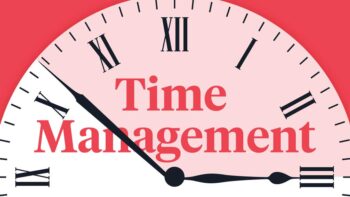Effective time management is essential for any office manager. Balancing multiple responsibilities, meeting deadlines, and leading a team requires careful planning and efficient use of your time. Here are some practical time management tips to help you stay organized and productive in your role.
Prioritize Tasks
Start by identifying and prioritizing your tasks. Not all tasks are created equal; some are more urgent or important than others. Use techniques like the Eisenhower Matrix to categorize tasks into four types: urgent and important, important but not urgent, urgent but not important, and neither urgent nor important.
For example, if you have a project deadline approaching and a routine staff meeting, prioritize the project over the meeting. Focus on high-impact tasks that drive results and contribute to your objectives.
Plan Your Day
Begin each day with a plan. Outline your key tasks and allocate time for each one. Use a daily planner or digital calendar to schedule your tasks and appointments. This helps you stay organized and ensures you allocate enough time for important activities.
Consider using time-blocking techniques to segment your day into blocks of focused work, meetings, and breaks. For instance, you might block off two hours in the morning for project work and schedule meetings in the afternoon.
Delegate Effectively
As an office manager, you don’t have to do everything yourself. Delegating tasks to your team not only frees up your time but also empowers your team members and develops their skills. Identify tasks that can be handled by others and assign them accordingly.
When delegating, be clear about expectations, deadlines, and deliverables. Provide the necessary resources and support to ensure your team can complete the tasks effectively. Regularly check in to monitor progress and offer assistance if needed.
Avoid Multitasking
While it might seem like multitasking helps you get more done, it often leads to decreased efficiency and increased errors. Focus on one task at a time and complete it before moving on to the next. This approach, known as single-tasking, improves the quality of your work and reduces stress.
For example, if you’re drafting a report, give it your full attention without checking emails or handling other tasks simultaneously. Once the report is finished, move on to your next task with a clear mind.
Set Boundaries and Limit Distractions
Create boundaries to protect your focused work time. Inform your team about your availability and set specific times for meetings and interruptions. Use tools like “Do Not Disturb” features on your communication platforms to minimize distractions.
Additionally, identify common distractions, such as social media or non-urgent emails, and limit their impact on your productivity. Set designated times to check emails and handle administrative tasks, rather than responding to them throughout the day.
Use Technology Wisely
Leverage technology to streamline your time management. Tools like project management software, calendar apps, and task management systems can help you organize your tasks, track progress, and set reminders.
For instance, use a project management tool like Asana or Trello to keep track of tasks, deadlines, and team responsibilities. Automation tools can also help with repetitive tasks, freeing up more time for strategic activities.
Implement the Two-Minute Rule
The two-minute rule is a simple yet effective time management technique. If a task can be completed in two minutes or less, do it immediately. This prevents small tasks from piling up and keeps your to-do list manageable.
For example, if you receive a quick request from a team member or need to send a brief email, handle it right away if it takes less than two minutes. This approach helps maintain momentum and keeps you focused on more significant tasks.
Reflect and Adjust
Regularly reflect on how you’re managing your time and make adjustments as needed. At the end of each day or week, review what worked well and what could be improved. Adjust your strategies and priorities based on your reflections to enhance your time management skills.
Consider keeping a time log to track how you spend your time and identify areas where you can improve. Use this information to make informed adjustments to your schedule and workflow.
Effective time management is crucial for office managers to handle their diverse responsibilities and lead their teams successfully. By prioritizing tasks, planning your day, delegating effectively, avoiding multitasking, setting boundaries, using technology, implementing the two-minute rule, and reflecting on your practices, you can enhance your productivity and maintain a well-organized office. Mastering these time management tips will not only help you stay on top of your tasks but also contribute to a more efficient and harmonious work environment.
